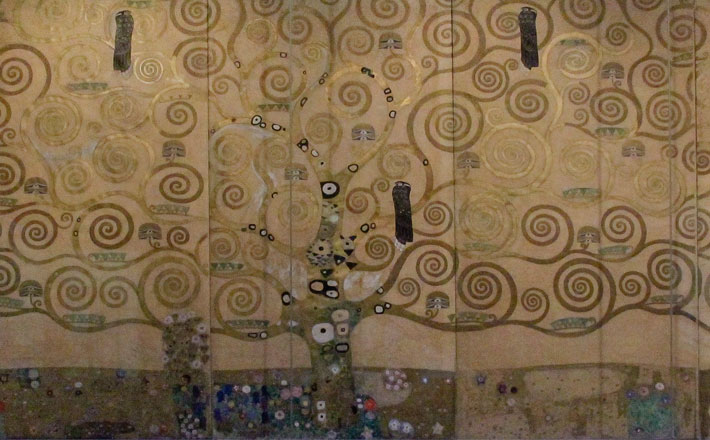Commentary on Psalm 67
A few weeks ago I was browsing through our local Barnes and Noble bookstore and ran across a thin volume with the title: PRAISE BE TO YOU: Laudato Si’: On Care for Our Common Home (Ignatius: San Francisco, 2015).
I picked up a tall Starbucks and sat down with this Encyclical Letter from Pope Francis. It begins:
In the words of this beautiful canticle, Saint Francis of Assisi reminds us that our common home is like a sister with whom we share our life and a beautiful mother who opens her arms to embrace us. “Praise be to You, my Lord, through our Sister, Mother earth, who sustains and governs us, and who produces various fruit with colored flowers and herbs.” (p. 9)
I went to get a second cup of coffee and spent the rest of the afternoon reading the Encyclical.
Psalm 67 in the psalter
This is one of a quartet of psalms labeled “songs,” dedicated to the music director and expressing praise and thanksgiving (Psalms 65-68). Psalm 67 calls for a string orchestra to accompany the song. These psalms frequently mention earth, using the Hebrew word ‘aretz, which occurs in the first verse of the Hebrew Bible. That word occurs in Psalms 65:5,9; 66:1,4; 67:2,6,7; 68:8. God has blessed the whole earth, with its blue rivers and seas, amber grain fields, green pastures, and forests (Psalm 65:9-13; blessed in v. 10). All the peoples of the earth (Psalm 66:1-4) are called to praise for God’s mighty acts among them. Psalm 67 prays for God to continue blessing inhabitants of the whole earth (vv. 2, 7) which means asking God to supply that which the earth produces (vv. 6-7). Psalm 68 (notoriously difficult to understand) speaks of a God-driven earthquake (68:8).
Benediction, blessing, and saving (Psalm 67:1-3)
In a religious context, a benediction is a part of a worship service referring to God’s gifts or blessings, as given to a congregation and a people. The blessing pronounced by Aaron and his sons (Numbers 6:24-26) fits well at the end of a service of worship (see Leviticus 9:22-23) and continues to be used in both Judaism and Christianity:
The LORD bless you and keep you;
The LORD make his face to shine upon you, and be gracious to you;
The LORD lift up his countenance upon you, and give you peace.
This psalm uses the language of that benediction (Psalm 67:1). When the Lord is angry, the Lord hides his face, paying no attention to the people and their prayers (see also Psalms 13:1; 27:9; 30:7). When the Lord shows favor, the Lord turns toward the worshippers with a beaming, smiling face (Psalm 67:1; see also Psalms 4:6; 31:16; 80:3, 7, 19).
The notion of God’s blessing is an especially important one in the Bible, and is often glossed over. Psalm 67:6-7 indicates that blessing means God causing the earth to be productive. This blessing activity of God involves the giving of sunshine and rain, good and seasonable weather, so that the crops grow and the harvest is good. When the earth yields such a harvest, it is an occasion for praise to God, “from whom all blessings flow” as the hymn puts it (vv. 3,5).
This psalm also refers to the saving power of God (v.2). One occasionally sees a bumper sticker on a vehicle declaring “Jesus saves.” I can say “amen” to this slogan but I think it should be balanced by another bumper sticker on the other side of the car saying, “God blesses.” These are the two primary shapes of God’s activity: 1) the dramatic acts of saving or rescuing (the Exodus in the Old Testament, the cross/resurrection in the New) and 2) the quiet, almost unnoticed action of blessing, giving sunshine and rain, good health, the joy of life in a loving family and with friends (throughout the Bible and Luther’s Small Catechism).
Blessing and mission (Psalm 67:4-7)
There is another emphasis in this psalm. In addition to praising God for saving and blessing Israel, there is a robust concern for people of other nations. It is the task of God’s people to bring the Good News about their God to other inhabitants of the planet (v. 2). God’s people are blessed — to be a blessing to other nations (Genesis 12:1-3).
The refrain in vv. 3 and 5 makes the same point. There’s a wideness in God’s mercy that goes beyond God’s people Israel and the Christian church. This psalm says, “Let the peoples praise you, O God,” and then as if to second the motion, the next line repeats the idea and expands it: “let all the peoples praise you.”
In its closing wish that “all the ends of the earth revere him,” Psalm 67 links up with the words of Jesus in Matthew 28:18-20 and Acts 1:8.
Our common home, viewed from the International Space Station
While doing some TV surfing a couple of weeks ago I discovered the NASA channel, making transmissions from the International Space Station. Two of the crew members were demonstrating gymnastics in the weightless environment. They opened a window and there, some 240 miles away, was the earth, our common home.
I could see why it has been called “the blue planet.” Some 80 percent of our planet-home is covered with water. But then I thought about the water pollution in Flint, Michigan and the invasive species in the waters of my home state of Minnesota.
In sum, our planet’s rivers and lakes, meadows and pastures, are no longer as lush as the picture in Psalm 65:9-13. As the Pope’s Encyclical puts it, “The earth, our home, is beginning to look more and more like an immense pile of filth … ” (p. 23). Our forests and grasslands are disappearing and the songs of millions of species in the rain forests and the oceans are being stilled.
As Psalm 67 concludes: may God continue to bless us (vv. 6,7). And as the Encyclical urges, may we learn to care for our common home.


May 1, 2016